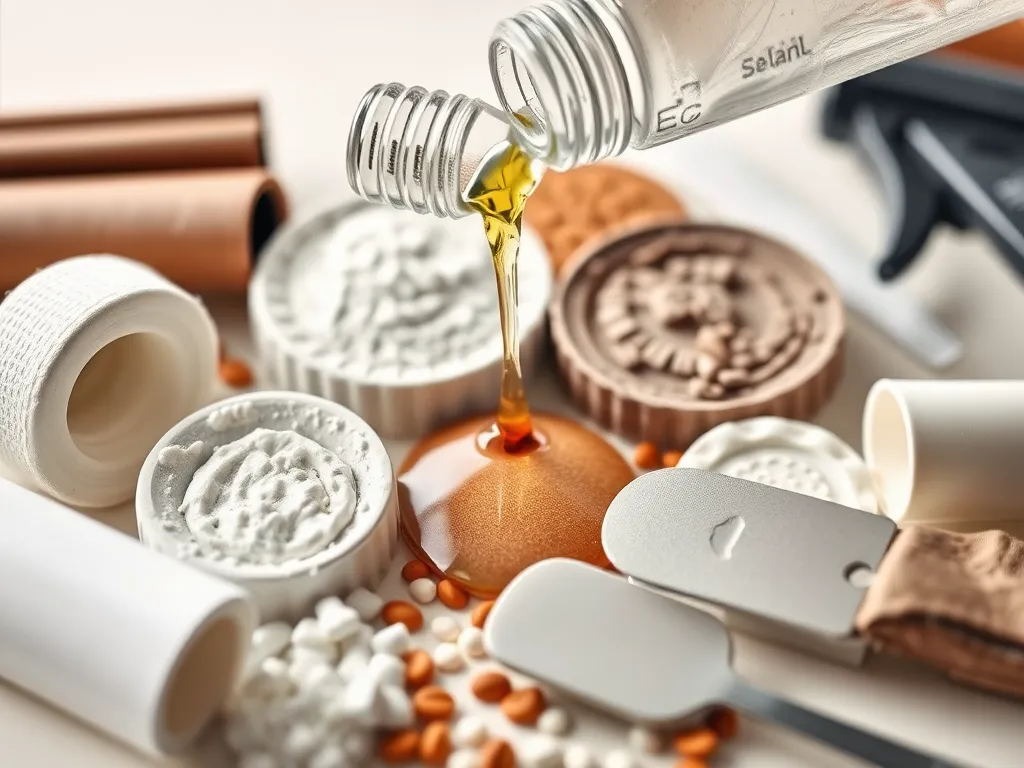
The Benefits and Application of Sealants
Sealants are a dental treatment that help protect teeth from decay and cavities. They are a thin, plastic coating that is applied to the chewing surfaces of the back teeth, where decay often starts.
Dental health is of utmost importance, and an essential part of it is using proper sealants . They manage to barricade the tooth surfaces, preventing the onset of cavities and tooth decay. Make it a point to explore more about it.
One of the key benefits of sealants is that they prevent tooth decay. The chewing surfaces of the back teeth have deep grooves and pits that can be difficult to clean with a toothbrush. As a result, bacteria and food particles can accumulate in these areas, leading to decay. Sealants provide a protective barrier over these vulnerable areas, preventing bacteria from reaching the tooth surface.
Nothing defines a bright smile more than healthy teeth. Among preventive measures, dental sealants are a prominent one. They act as protective shields, keeping your teeth safe from decay-causing bacteria. Make your dental health a priority today.
In addition to preventing tooth decay, sealants also protect against cavities. Cavities occur when tooth decay has progressed and a hole has formed in the tooth. By applying sealants, the teeth are less susceptible to decay, reducing the risk of cavities.
Another benefit of sealants is that they can reduce the need for dental treatment. By preventing tooth decay and cavities, sealants help maintain the overall health of the teeth. This means fewer fillings, root canals, and other dental procedures in the future.
Sealants provide long-lasting protection. They can last for several years with proper care and maintenance. This makes them a cost-effective investment in dental health.
Benefits of Sealants
Prevents tooth decay: Sealants provide a protective barrier over the deep grooves and pits of the back teeth, preventing bacteria and food particles from causing decay.
Protects against cavities: By reducing the risk of tooth decay, sealants also protect against the formation of cavities.
Reduces the need for dental treatment: Sealants help maintain the overall health of the teeth, reducing the need for fillings, root canals, and other dental procedures.
The magic of proper dental care lies in simple protective measures like using teeth sealants . These not only add a protective layer to your teeth but also keep cavities at bay. It’s time you put your oral health at the forefront.
Provides long-lasting protection: With proper care, sealants can provide years of effective protection against decay and cavities.
Ensuring a clean, healthy set of teeth isn't merely a cosmetic requirement, but a promise of overall wellbeing. One of the time-proven methods to achieve this is through the application of sealants. Find out more about dental sealant services here and take a step toward better dental health today.
Seals out bacteria and plaque: Sealants create a smooth, easy-to-clean surface on the teeth, making it more difficult for bacteria and plaque to adhere.
Application of Sealants
Cleaning and preparing the tooth surface: Before applying sealants, the teeth are thoroughly cleaned to remove any plaque or debris. The tooth surface is then roughened with an etching solution to enhance the bond between the sealant and the tooth enamel.
Applying the sealant material: The sealant material is carefully applied to the chewing surfaces of the back teeth. It flows into the deep grooves and pits, creating a protective barrier.
Using a curing light to harden the material: Once the sealant material is applied, a curing light is used to harden it quickly. This ensures that the sealant forms a strong bond with the tooth surface.
Checking bite and adjusting the sealant if necessary: After the sealant is hardened, the dentist will check the patient's bite to ensure that the sealant does not interfere with the teeth coming together properly. If necessary, adjustments can be made to the sealant to ensure a comfortable fit.
Sealant Maintenance
Brushing and flossing regularly: It is important to continue practicing good oral hygiene habits, including brushing and flossing regularly, even with sealants. This helps remove any bacteria or plaque that may form on the teeth.
Avoiding sticky and hard foods: While sealants provide protection, it is still important to avoid sticky and hard foods that can damage the sealant or cause it to come loose.
Visiting the dentist for regular check-ups: Regular dental check-ups are essential for maintaining oral health, including the condition of sealants. The dentist can check for any signs of wear or damage and recommend any necessary repairs or replacements.
A beautiful smile starts with good oral health, and Peak Dental's sealant services ensure just that. Sealants are a safe and effective method of protecting teeth against decay - a proactive step toward maintaining that bright, healthy smile. Check it out and make an informed decision for your dental health today.
Replacing worn or damaged sealants: Over time, sealants may become worn or damaged. If this occurs, the dentist can replace the sealant to ensure continued protection for the teeth.
Types of Sealants
The world of dental care is ever-evolving, and tooth sealants are becoming an increasingly popular preventive measure. These sealants form a protective barrier that combats tooth decay and cavities. Explore more today for your brighter tomorrow.
Resin-based sealants: These are the most common type of sealants. They are made of a clear or tooth-colored resin material that bonds to the tooth enamel.
Glass ionomer sealants: These sealants release fluoride over time, providing additional protection against decay.
Fluoride-releasing sealants: Similar to glass ionomer sealants, these sealants also release fluoride to strengthen the tooth enamel.
Self-etching sealants: These sealants bond directly to the tooth enamel without the need for etching or preparation.
Sealants for Different Age Groups
Sealants are especially beneficial for children. Children's teeth are more susceptible to decay due to their developing oral hygiene habits. Applying sealants at a young age can help protect their teeth as they learn proper dental care.
Teenagers can also benefit from sealants, as they often have a higher risk of cavities due to poor dietary choices and oral hygiene habits. Sealants can provide an extra layer of protection against decay.
Sealants are not just for children and teenagers. Adults can also benefit from sealants, especially if they have deep grooves and pits in their teeth that are difficult to clean properly.
Even seniors can benefit from sealants. As we age, the risk of tooth decay and cavities increases. Sealants can help protect aging teeth from decay and reduce the need for dental treatment.
